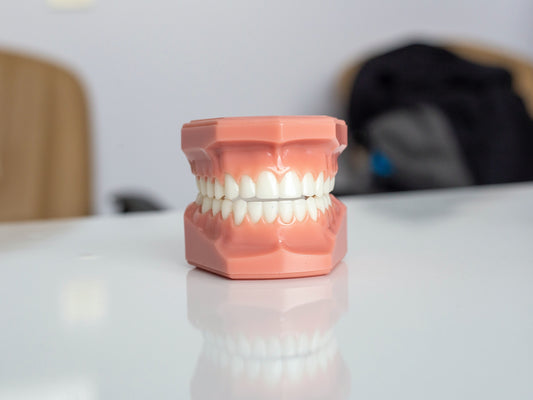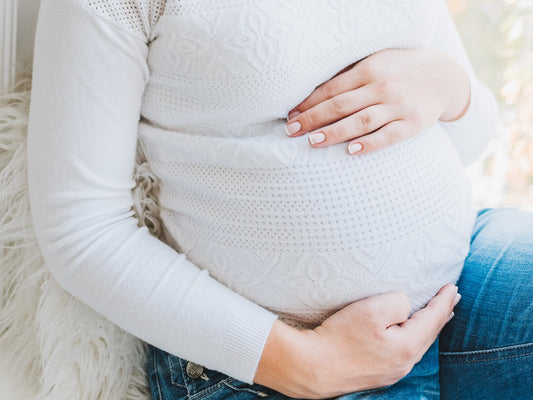From stretch marks to back pain, there are a lot of things that can occur during pregnancy that can make the experience frustrating, to say the least. Another common challenge that a lot of people struggle with during pregnancy is dehydration.
Are you dealing with dehydration during pregnancy? Are you unsure of what dehydration looks like or how to cope with it? Outlined below are potential signs of dehydration to watch for, as well as some tips on how to manage them.
Is Dehydration in Pregnancy Common?
Dehydration, in general, is quite common among adults. It becomes an even more frequent issue during pregnancy, though.
Most people experience only mild dehydration symptoms while pregnant. For others, though, the issue can become severe, and they may even require hospitalization to get things under control and ensure the safety of the baby. If you feel unwell or are unsure of something, be sure to check in with your doctor.
Why Do People Become Dehydrated While Pregnant?
What makes pregnancy such a dehydrating time? A lot of things, actually.

The following are some of the main occurrences associated with dehydration while pregnant:
Increased Blood Volume
During pregnancy, the body’s blood volume increases by anywhere from 20 to 100 percent [1].
When this happens, more water is needed to maintain the increase in blood volume (blood plasma is 90 percent water, after all). The body also has a harder time retaining water as it adjusts to this sudden change in blood volume [2].
Increased Water Needs
During pregnancy, water needs to increase by quite a bit. When you consider how much your blood volume changes, this makes perfect sense.
Most professionals recommend a minimum of 8-12 glasses of water per day. However, many women may find that they need even more than this to stay hydrated and feel their best [3].
Morning Sickness
Ah, morning sickness. It’s one of the most common symptoms of pregnancy, and in a lot of cases, it’s not even limited to just the morning hours.
When you’re frequently vomiting throughout the day, which happens most often during the early stages of pregnancy, you’re losing a lot of fluids. If you aren’t diligent about replacing those fluids, as well as the electrolytes you’re losing alongside them, you could be more prone to developing dehydration symptoms.
Hyperemesis
Hyperemesis is a severe form of morning sickness. It happens during about 2 percent of pregnancies [4]. Hyperemesis is characterized by extreme nausea and frequent vomiting. This increased vomiting makes it very difficult to keep food down. It also further increases one’s possibility of becoming dehydrated while pregnant.
Diarrhea
Frequent diarrhea may occur during the last trimester of pregnancy (lucky you, when the vomiting from morning sickness gets under control, the diarrhea comes). Like vomiting, diarrhea also leads to increased fluid loss. This, in turn, can lead to a greater risk of developing dehydration and dehydration symptoms.
Temperature Changes
During pregnancy, it’s common to be more sensitive to temperatures, too. You might find that you become overheated more easily and sweat more often, especially if you’re pregnant during the summer months.
When you sweat, you lose water and electrolytes. If you are sweating more while pregnant, you’ll need to take more steps to replace the water and electrolytes you’re losing.
What Does Dehydration in Pregnancy Look Like?
Not sure if dehydration is the problem? The following are some of the most common indicators of dehydration during pregnancy [5]:
- Changes in urine color (dark yellow or amber instead of light or medium yellow)
- Dry or sticky-feeling mouth
- Increased sleepiness
- Increased feelings of thirst
- Decreased need to urinate
- Muscle cramps (also known as charley horses)
- Headaches
- Constipation
- Dizziness
When pregnant, it’s not always easy to tell if your symptoms are related to dehydration or something else.
If you’re noticing any of the signs listed above or suspect that you’re dehydrated or severely dehydrated, it’s always good to check-in with your doctor. They can provide advice and recommendations that are specific to your situation.
Here are some of the most serious symptoms to watch for:
- Extreme thirst
- Excessive dryness of the mouth, skin, and/or mucous membranes
- Increased feelings of irritability or confusion
- Little or no urine production
- Very dark (almost brown) urine
- Sunken-in eyes
- Increased heartbeat or breathing rate
- Decreased blood pressure
Risks of Dehydration in Pregnancy
If dehydration isn’t managed during pregnancy, you could increase your risk (and your baby’s risk) of experiencing certain health issues. The list of potential complications includes the following:
Severe Constipation
Occasional constipation is not uncommon during pregnancy. Hormonal changes can slow down the digestive process and make it more common. If you’re also dehydrated, though, you may find that your constipation is even more severe.
Constipation usually does not pose any serious health risks. However, it is very uncomfortable (and who needs any more discomfort during their pregnancy?). Constipation can also lead to straining during bowel movements. This can cause or worsen hemorrhoids, which are painful, swollen veins in your rectal area [6].
Urinary Tract Infections
When you’re pregnant, your risk of developing a urinary tract infection (or UTI) increases [7]. Dehydration can increase that risk even further.
If it’s taken care of promptly, a UTI usually is not serious. If it’s not addressed right away, though, UTIs can spread and cause infections in other areas of the body. They may even lead to early labor [7].
Low Amniotic Fluid
Dehydration during pregnancy can decrease amniotic fluid levels. Low amniotic fluid (also known as oligohydramnios) can contribute to a variety of issues, including the following [8]:
- Birth defects from the compression of fetal organs
- Increased risk of miscarriage or stillbirth
- Intrauterine Growth Restriction (or IUGR)
- Preterm birth
- Labor complications, including cord compression, meconium-stained fluid, and the need for cesarean delivery
Braxton Hicks Contractions
Dehydration is one of the most common triggers of Braxton Hicks contractions [9].

Braxton Hicks contractions are sporadic contractions, sometimes referred to as “false labor” contractions. They’re not dangerous, but they can be quite painful and irritating. Managing hydration can help to minimize them.
Inadequate Breast Milk Production
Finally, dehydration can lead to inadequate breast milk production [10].
This can make feeding your newborn baby difficult and may lead to them not getting sufficient vitamins and nutrients from breast milk alone. Insufficient breast milk production can also contribute to your baby becoming dehydrated.
How to Manage Dehydration During Pregnancy
It doesn’t matter if you’re already experiencing symptoms of dehydration during pregnancy or if you just want to minimize your chances of dealing with them. Either way, it’s a good idea to have these tips for managing dehydration in your arsenal so you can stay proactively hydrated:
Drink Lots of Water
This one is an easy one. Increase your water intake.
During pregnancy, it’s recommended to drink a minimum of 8-12 glasses of water per day. If you’re not meeting this recommendation on a daily basis, your chances of becoming dehydrated are much greater.
Struggle to fit in this much water each day? Here are some tips that can help:
- Drink a glass of water before each meal or snack
- Set alarms on your phone or watch to remind you to drink enough water
- Add hydrating foods like cucumbers or berries to your water for extra flavor and water volume
Some people find that drinking water with food can cause indigestion. If this is the case for you, try to drink water in between meals and snacks instead. Setting alarms can be handy to help you remember to drink regularly during the day.
Add Electrolytes To Your Hydration Routine
When it comes to hydration during pregnancy, water should be your number one priority. Your second priority should be making sure you’re getting enough electrolytes.
Without electrolytes like sodium, potassium, and magnesium, it can be harder for you to get and stay hydrated. You might also be more prone to symptoms of dehydration like headaches, fatigue, and muscle cramps.
One of the easiest ways to increase your electrolyte intake is by adding a pre-packaged drink mix to your water (like Hydrant!). This provides you with a balanced dose of several electrolytes at once—sodium, potassium, magnesium, and zinc. It also adds flavor to your water, which can make it more fun to drink. Hydrant does not contain any artificial sweeteners or stevia, and are light and refreshing to drink throughout the day.
Reduce Diuretics
Finally, reduce your intake of diuretics like caffeine during pregnancy.
Women can safely consume up to 200 milligrams of caffeine during pregnancy without an increased risk of issues like miscarriage or low birth weight. However, some women may find that they are extra sensitive to caffeine and need to drink less than this during pregnancy [11]. We always prefer to err on the side of caution, and recommend that you always consult with your doctor if there’s any question or concern about drinking caffeine while pregnant.
If you worry about dehydration and aren’t feeling better after following the steps listed above, decreasing your caffeine intake might be helpful.
Have a Happy, Hydrated Pregnancy

Your risk of dehydration may increase during pregnancy, but there are lots of steps you can take to manage it and ensure you and your baby are getting plenty of fluids and electrolytes. Follow the steps listed above and you’ll have a much easier time having a happy, healthy, and well-hydrated pregnancy! Congrats to you and your (soon to be) family!



























